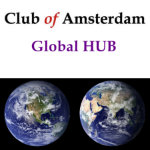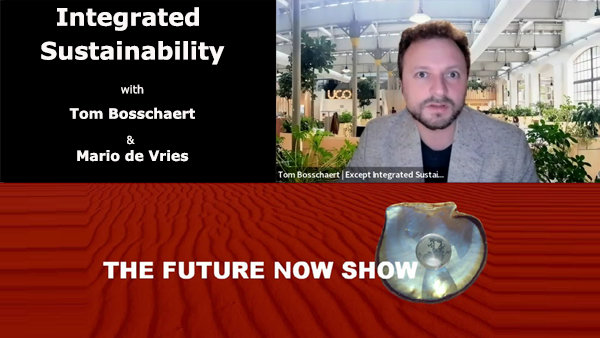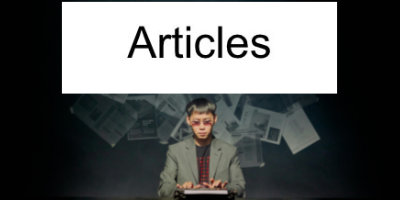
Marketplace Sustainability
The Future Now Show
Books
Articles
Videos
Links
Voting
Members Dialogues
Live Events
Marketplaces
supported by ChatGPT
Please send your comments, ideas, contributions related to the Marketplace Sustainability to
email ???
Global HUB Expert
Members:
Sustainability refers to the ability to meet the needs of the present without compromising the ability of future generations to meet their own needs. It emphasizes the balance between economic growth, environmental protection, and social well-being, ensuring long-term health and viability for both humanity and the planet.
the future of SustainabilityThe future of sustainability on Earth hinges on collective global efforts, technological advancements, policy changes, and individual action. Below are some key aspects and trends that could define sustainability in the coming years:
Energy TransitionRenewable Energy Expansion
Solar, wind, and other renewables will continue to replace fossil fuels. Advances in energy storage (e.g., battery technology) will enable more consistent energy supplies.
Decentralized Grids
Localized energy production and distribution will reduce reliance on centralized systems, improving resilience.
Fusion Energy
If commercially viable, fusion energy could revolutionize energy production with minimal environmental impact.Circular EconomyWaste Reduction
Transitioning to systems where materials are reused, repaired, or recycled will minimize waste.
Biodegradable Materials
Innovations in materials science will replace plastics and other pollutants with eco-friendly alternatives.
Product Stewardship
Companies will take greater responsibility for the life cycle of their products.Sustainable AgricultureRegenerative Practices
Techniques that restore soil health, increase biodiversity, and sequester carbon will become mainstream.
Vertical Farming
Urban, space-efficient farms will reduce transportation emissions and bring food closer to consumers.
Lab-Grown Food
Cultured meat and alternative proteins will help reduce the environmental impact of traditional agriculture.Urban SustainabilitySmart Cities
Integrating technology for efficient transportation, energy use, and waste management.
Green Infrastructure
Incorporating green spaces, sustainable buildings, and flood management systems.
Mass Transit
Enhancing public transport systems to reduce private vehicle use.Climate Resilience
Adaptation Measures
Building infrastructure to withstand extreme weather events.
Carbon Sequestration
Scaling up natural (forests, wetlands) and technological (direct air capture) carbon capture methods.
Geoengineering
Exploring controversial solutions like solar radiation management, though these come with risks.Global CooperationInternational Agreements
Strengthening global commitments like the Paris Agreement.
Equity and Justice
Ensuring developing countries have access to resources and technologies for sustainable development.
Corporate Accountability
Holding corporations to higher environmental, social, and governance (ESG) standards.Technological InnovationAI and Big Data
Optimizing resource management and monitoring environmental changes in real-time.
Water Desalination and Recycling
Making freshwater accessible without depleting natural sources.
Bioengineering
Designing crops and microorganisms to tackle environmental challenges.Cultural and Behavioral ShiftsConscious Consumption
Encouraging people to prioritize sustainable products and lifestyles.
Education and Awareness
Empowering communities to understand and act on sustainability challenges.
Youth Leadership
Younger generations will continue to advocate for and innovate in sustainability.
ChallengesDespite the optimistic outlook, challenges remain:
The future of sustainability is a shared responsibility. While technological and policy innovations can set the stage, individual actions and a shift in collective consciousness will be critical in ensuring a sustainable and equitable future for Earth.

The Future Now Show
Integrated Sustainability
with Tom Bosschaert & Mario de Vries
About systemic solutions for our societal challenges by combining science, business, design, and communication.In the past decades, Tom has developed several hundred projects globally, for groundbreaking sustainable cities, buildings, business, policy, and industry. Tom’s vision shows that we can flourish globally when we simultaneously integrate environmental, societal, economical, and technical aspects in our society.

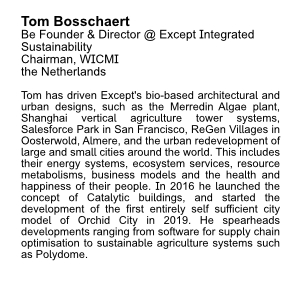
Moderator

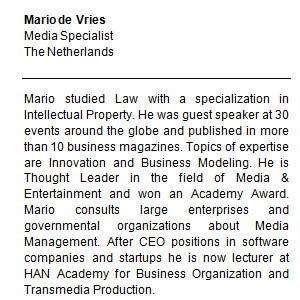
Credits
Tom Bosschaert
Founder & Director @ Except Integrated Sustainability
Systemic Sustainability strategy & design
the Netherlands
except.eco
Chairman, Environment Committee of the World Institute for Change Management and Innovation (WICMI)
Switzerland
wicmi.ch
Except Projects
Moderator
Mario de Vries
Media Specialist
The Netherlands
gazooom.nl
Felix B Bopp
Producer of The Future Now Show
clubofamsterdam.com
The Future Now Show
clubofamsterdam.com/the-future-now-show
top
BooksExploring literature on global sustainability offers valuable insights into the challenges and solutions shaping our future. These books offer diverse perspectives on sustainability, providing both theoretical frameworks and practical approaches to creating a more sustainable global future.
The Future We Choose: Surviving the Climate Crisis
by Christiana Figueres and Tom Rivett-Carnac, key architects of the Paris Agreement
This book presents two contrasting futures - one of inaction and disaster, the other of proactive sustainability - emphasizing the power of our choices in addressing climate change.
This Changes Everything: Capitalism vs. The Climate
by Naomi Klein
She argues that addressing climate change necessitates a fundamental restructuring of our economic systems, critiquing unrestrained capitalism and advocating for sustainable alternatives.
The Uninhabitable Earth: Life After Warming
by David Wallace-Wells
The book provides a stark examination of the potential consequences of climate change, urging immediate and comprehensive action to mitigate its most severe impacts.
Our Common Future
by the World Commission on Environment and Development
Also known as the Brundtland Report, this seminal 1987 publication introduced the concept of sustainable development, defining it as meeting present needs without compromising future generations' ability to meet theirs.
Worldchanging: A User's Guide for the 21st Century
by Alex Steffen
This comprehensive guide compiles innovative solutions and ideas for building a sustainable and prosperous future, covering topics from green design to social innovation.
Braiding Sweetgrass: Indigenous Wisdom, Scientific Knowledge, and the Teachings of Plants
by Robin Wall Kimmerer
The book combines indigenous wisdom with scientific knowledge, emphasizing the importance of a reciprocal relationship with the natural world to achieve sustainability.
Climate Justice: Hope, Resilience, and the Fight for a Sustainable Future
By Mary Robinson
Powerful and deeply humane, Climate Justice is a stirring manifesto on one of the most pressing humanitarian issues of our time, and a lucid, affirmative, and well-argued case for hope.
Here’s a curated list of the best books on sustainability, categorized for beginners and professionals:
For BeginnersCradle to Cradle: Remaking the Way We Make Things
by William McDonough & Michael Braungart
Introduces the concept of circular economy and designing with nature in mind.
The Upcycle: Beyond Sustainability - Designing for Abundance
by William McDonough & Michael Braungart
A follow-up to *Cradle to Cradle* that provides practical, optimistic guidance.The Story of Stuff
by Annie Leonard
Explains the life cycle of products and their environmental impact in an accessible, engaging style.
No One Is Too Small to Make a Difference
by Greta Thunberg
A collection of speeches from the young climate activist, inspiring individual action.For Professionals
The Ecology of Commerce
by Paul Hawken
Discusses the role of businesses in fostering a sustainable economy.
Doughnut Economics: Seven Ways to Think Like a 21st-Century Economist
by Economist Kate Raworth
She introduces a transformative economic model that balances human needs with planetary boundaries, advocating for an economy that is both regenerative and distributive.
Designing Regenerative Cultures
by Daniel Christian Wahl
Explores holistic approaches to creating resilient, sustainable systems.
Sustainability Principles and Practice
by Margaret Robertson
A comprehensive guide covering sustainability across industries and disciplines.
Drawdown: The Most Comprehensive Plan Ever Proposed to Reverse Global Warming
edited by Paul Hawken
A practical guide with data-backed solutions for tackling climate change.
Green Swans: The Coming Boom in Regenerative Capitalism
by John Elkington
Examines how regenerative models can lead to sustainable growth.
Symbiosis in Development (SiD)
by Tom Bosschaert, Founder & Director @ Except Integrated Sustainability
A complete handbook from A to Z in systemic sustainable development, from theory and strategy to practical implementation, with experience from 700 projects worldwide. It is published open source, and is a modular, open framework, adaptable to different contexts, industries, and scales.
The hardcover can be purchased, and the PDF can be downloaded for free, on the ThinkSiD.org website.Bonus Reads (For All Levels)
Silent Spring
by Rachel Carson
The book that launched the environmental movement, warning about pesticide use.
Let My People Go Surfing: The Education of a Reluctant Businessman
by Yvon Chouinard
The Patagonia founder shares his journey in sustainable business practices.
Factfulness: Ten Reasons We're Wrong About the World – and Why Things Are Better Than You Think
by Hans Rosling
Offers a hopeful perspective on global trends, including sustainability.
top
ArticlesSymbiosis in Development (SiD)
by Tom Bosschaert, Founder & Director @ Except Integrated Sustainability
A complete handbook from A to Z in systemic sustainable development, from theory and strategy to practical implementation, with experience from 700 projects worldwide. It is published open source, and is a modular, open framework, adaptable to different contexts, industries, and scales.
The hardcover can be purchased, and the PDF can be downloaded for free, on the ThinkSiD.org website.
Natural Capital & new innovation strategies
by Tom Bosschaert, Founder & Director @ Except Integrated Sustainability
Ecosophy: Nature’s Guide to a Better World
by Elisabet Sahtouris, PhD
Sustainable Furniture
Climate Change Success Story
The Unsustainable Green Transition
by Simon Michaux
The science of water sustainability
by TechKnow, Al Jazeera English
Sustainable Water Future
Climate Change Success Story
New climate insight revealed
Unexpected predictions from the military and insurance industry on the effects of climate change
by Saul Boyle, Tom Bosschaert, Mark Ratcliff,
Except Integrated Sustainability B.V.Leading institutions have published several reports that provide in-depth analyses and projections on the future of global sustainability. These reports offer comprehensive insights into the current state and future prospects of global sustainability, providing valuable guidance for policymakers, businesses, and researchers. Here are some notable publications:
Global Sustainable Development Report (GSDR)
Published by the United Nations, the GSDR aims to strengthen the science-policy interface and provides guidance on achieving sustainable development goals.
ERM Sustainability Report 2024
ERM's report addresses urgent global challenges such as climate change, nature loss, and social inequity, outlining strategies to meet these issues.
Deloitte Sustainability Action Report 2024
This report details executives' approaches to integrating Environmental, Social, and Governance (ESG) measures into their business strategies.
German Advisory Council on Global Change (WBGU) Reports
WBGU publishes flagship reports on various sustainability topics, including climate change, urban transformation, and digital futures.
World Academy of Art and Science (WAAS) Finance Initiatives
WAAS explores innovative financial solutions to fund sustainable development goals, emphasizing the role of capital in achieving sustainability.

top
VideosIntegrated Sustainability
with Tom Bosschaert & Mario de Vries
Greenwashing: When Companies Aren’t as Sustainable as They Claim
by WSJ
top
LinksSustainability is a global endeavor, with numerous leading institutes and organizations dedicated to environmental conservation and sustainable development across different continents. Here are some prominent entities by region:
Africa
Green Africa Youth Organization (GAYO)
A youth-led organization focused on environmental sustainability and community development in Africa.
Cheetah Conservation Fund (CCF)
Founded in Namibia, CCF is a global leader in research and conservation of cheetahs.Asia
Greenpeace East Asia
Part of the global Greenpeace network, focusing on pressing environmental issues in the East Asian region.
The Energy and Resources Institute (TERI)
Based in India, TERI is dedicated to conducting research for sustainable development of India and the Global South.Europe
World Wildlife Fund (WWF)
With its headquarters in Switzerland, WWF is one of the world's largest conservation organizations, working in more than 100 countries.
European Environment Agency (EEA)
An agency of the European Union providing independent information on the environment.North America
Sierra Club
One of the oldest environmental organizations in the U.S., focusing on promoting clean energy and conservation efforts.
The Nature Conservancy
A U.S.-based global environmental organization working to create a world where people and nature can thrive.South America
Amazon Conservation Association
Focused on protecting the Amazon rainforest through science, sustainable resource management, and education.Fundación Natura Colombia
A Colombian organization dedicated to the conservation of biodiversity and sustainable development.Oceania
Australian Conservation Foundation (ACF)
Australia's national environment organization, committed to advocating for the protection of the natural environment.Forest & Bird
New Zealand's leading independent conservation organization, protecting wildlife and wild places.
Several companies worldwide have been recognized for their exceptional commitment to sustainability, integrating environmental, social, and governance (ESG) principles into their operations. These companies exemplify how integrating sustainability into business strategies can lead to global recognition and contribute significantly to environmental conservation and social responsibility.
Schneider Electric
A French multinational specializing in energy management and automation solutions, Schneider Electric has consistently topped sustainability rankings for its efforts in reducing carbon emissions and promoting renewable energy.
Vestas Wind Systems
Based in Denmark, Vestas is a global leader in wind turbine manufacturing and has been acknowledged for its contributions to renewable energy and sustainable practices.
Brambles Limited
An Australian logistics company specializing in pallet and container pooling, Brambles is recognized for its circular business model and resource efficiency.
Schnitzer Steel Industries
A U.S.-based company, Schnitzer Steel is a leader in metals recycling, contributing significantly to resource conservation and waste reduction.
Neste Corporation
Headquartered in Finland, Neste is renowned for producing renewable diesel and sustainable aviation fuel, playing a pivotal role in reducing transportation emissions.
Here’s a breakdown of leading universities offering sustainability studies programs across continents. These universities are at the forefront of sustainability education, providing innovative courses and research opportunities to address global environmental challenges:
North America
Stanford University
USA
Stanford Doerr School of Sustainability
Focus
Climate science, energy transitions, and sustainable systems.
University of British Columbia (UBC)
Canada
Bachelor of Science in Global Resource Systems
Focus
Interdisciplinary approaches to environmental management.
University of Texas at Austin
USA
Bachelor of Arts in Sustainability Studies
Focus
Urban sustainability, conservation, and policy.South America
Universidade de São Paulo (USP)
Brazil
Master’s in Environmental Science
Focus
Environmental restoration and sustainable management.
Pontificia Universidad Católica de Chile
Environmental Engineering and Sustainable Development Programs
Focus
Renewable energy and sustainable urban development.Europe
University of Cambridge
UK
Master’s in Sustainability Leadership
Focus
Corporate sustainability and governance.
ETH Zurich
Switzerland
Master’s in Environmental Sciences
Focus
Climate systems, sustainable engineering, and resource management.
Wageningen University & Research
Netherlands
Bachelor’s and Master’s in Environmental Sciences
Focus
Agroecology, resource recovery, and sustainable food systems.Africa
University of Cape Town (UCT)
South Africa
Master’s in Climate Change and Sustainable Development
Focus
Adaptation strategies and policy implementation.
Strathmore University
Kenya
Energy and Sustainability Studies
Focus
Renewable energy and sustainable urbanization.Asia
National University of Singapore (NUS)
Singapore
Master’s in Environmental Management
Focus
Urban sustainability and biodiversity conservation.
Tsinghua University
China
Master’s in Environmental Science and Engineering
Focus
Pollution control and sustainable industrial systems.
Indian Institute of Technology (IIT), Bombay
India
Centre for Technology Alternatives for Rural Areas (CTARA)
Focus
Sustainable technologies for rural development.Oceania
Australian National University (ANU)
Australia
Master’s in Climate Change
Focus
Mitigation strategies and sustainable policy frameworks.
University of Auckland
New Zealand
Environmental Science and Sustainability Programs
Focus
Marine sustainability and conservation.
top
Voting
top
Members Dialogues
top

Live Events
Copyright © 2002-2025, Felix Bopp. All rights reserved.

